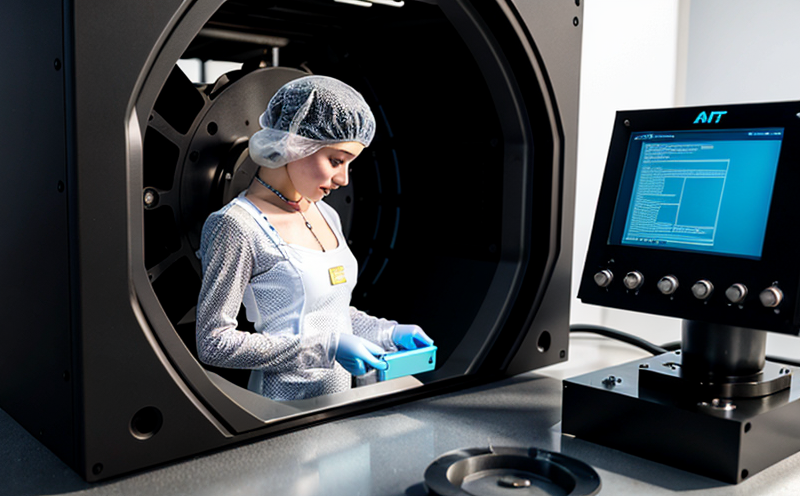ISO 52904 Technical Specification for Powder Bed Fusion Process Validation
The ISO 52904 Technical Specification for Powder Bed Fusion (PBF) Process Validation sets the global standard for ensuring that additive manufacturing processes, particularly those using PBF technology, are validated in a way that guarantees repeatability and reproducibility. This specification is crucial for industries reliant on high-precision parts, such as aerospace, automotive, medical devices, and defense sectors. Compliance with ISO 52904 ensures robust process validation, which directly impacts the reliability and safety of end products.
The PBF process involves the use of a laser or electron beam to fuse metallic powder particles into solid structures layer by layer. This method allows for intricate geometries and precise part dimensions that are difficult to achieve with traditional manufacturing techniques. However, achieving consistent quality across production runs is paramount, especially in sectors where safety and performance are critical.
ISO 52904 focuses on the validation of PBF processes through a series of tests designed to evaluate the repeatability and reproducibility of the process parameters. The standard outlines specific procedures for setting up test samples, performing the fusion process, and analyzing the resulting parts. It emphasizes the importance of controlled variables such as powder type, laser power settings, scan speed, layer thickness, and build orientation.
One of the key aspects of ISO 52904 is its emphasis on statistical analysis to demonstrate that a PBF process can consistently produce parts within specified tolerances. This involves conducting multiple runs of the same part design under identical conditions and comparing the resulting parts for dimensional accuracy, mechanical properties, and surface finish.
The standard also addresses the role of metrology in validating PBF processes. High-precision measurement tools are essential to ensure that the manufactured parts meet the required specifications. This includes using coordinate measuring machines (CMMs), optical scanners, and other advanced metrology equipment to verify part dimensions during each production run.
Another critical component of ISO 52904 is the validation of post-processing steps. Many PBF parts require additional processes such as heat treatment or finishing to achieve their final properties. The standard provides guidelines for validating these post-processing stages, ensuring that they do not compromise the integrity of the original process.
Compliance with ISO 52904 is essential for companies seeking to meet regulatory and quality standards in high-stakes industries. It helps manufacturers demonstrate a commitment to excellence and reliability, which can be crucial for obtaining certifications and meeting customer expectations.
The implementation of ISO 52904 requires careful planning and execution. Quality managers and compliance officers must work closely with R&D engineers and procurement teams to ensure that all aspects of the PBF process are validated according to the standard's requirements. This collaboration ensures that every step, from powder selection to final part inspection, is aligned with industry best practices.
In summary, ISO 52904 provides a comprehensive framework for validating PBF processes, ensuring consistent quality and reliability in additive manufacturing. By adhering to this specification, manufacturers can build trust with customers and regulators while maintaining the integrity of their production processes.
Customer Impact and Satisfaction
- Improved Quality Control: Compliance with ISO 52904 ensures that PBF processes are validated rigorously, leading to higher-quality parts.
- Risk Reduction: By validating the process according to international standards, companies can reduce the risk of part failures and associated safety hazards.
- Increased Customer Confidence: Demonstrating adherence to ISO 52904 can enhance customer trust in the quality of manufactured parts.
- Enhanced Regulatory Compliance: Many industries have strict regulations governing product safety. Compliance with ISO 52904 helps companies meet these requirements, ensuring regulatory approval and market access.
- Improved Reproducibility: The standard's emphasis on statistical analysis ensures that parts can be consistently produced across different batches or shifts.
- Enhanced Competitiveness: Demonstrating a commitment to excellence through ISO 52904 can give companies a competitive edge in the marketplace.
- Reduced Costs: By ensuring consistent quality, the standard helps prevent costly rework or scrap due to process inconsistencies.
The implementation of ISO 52904 has a direct positive impact on customer satisfaction by delivering high-quality parts that meet stringent specifications. This not only enhances brand reputation but also fosters long-term relationships with customers and stakeholders.
International Acceptance and Recognition
The ISO 52904 Technical Specification for Powder Bed Fusion Process Validation enjoys widespread international acceptance, making it a cornerstone in the additive manufacturing industry. This global standard ensures that processes are validated consistently across different geographic regions, enhancing interoperability between manufacturers.
Many countries have adopted ISO 52904 as part of their national standards or regulatory frameworks. For instance, several aerospace and automotive industries have incorporated this specification into their quality management systems, ensuring that parts meet stringent safety and performance requirements. Similarly, medical device manufacturers rely on ISO 52904 to validate processes for critical components.
The international recognition of ISO 52904 underscores its importance in driving the additive manufacturing industry toward higher standards of quality and reliability. By adhering to this specification, companies can ensure that their products meet global expectations and are accepted across borders.
Environmental and Sustainability Contributions
The implementation of ISO 52904 for PBF process validation contributes significantly to environmental sustainability and resource efficiency. By ensuring consistent quality and repeatability, this standard helps minimize waste in manufacturing processes.
PBF technology is known for its ability to produce complex parts with minimal material wastage. However, achieving optimal material usage requires rigorous process validation. ISO 52904 ensures that manufacturers can consistently produce parts without excess powder or under-melting, which would otherwise lead to waste. This not only reduces the environmental footprint but also optimizes resource use.
The standard's emphasis on statistical analysis and metrology further contributes to sustainability by ensuring that resources are used efficiently. By validating processes through controlled variables, companies can minimize energy consumption and material waste in production runs.
Furthermore, ISO 52904 supports the circular economy by promoting the reuse of materials. The standard's focus on process repeatability ensures that parts can be consistently produced with high-quality standards, which is essential for recycling and remanufacturing processes.





